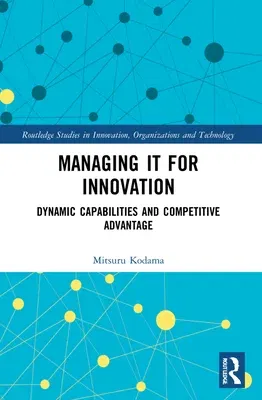With recent advances in IT in areas such as AI and IoT, collaboration
systems such as business chat, cloud services, conferencing systems, and
unified communications are rapidly becoming widely used as new IT
applications in global corporations' strategic activities. Through
in-depth longitudinal studies of global corporations, the book presents
a new theoretical framework and implications for IT-enabled dynamic
capabilities using collaboration systems from the perspective of micro
strategy theory and organization theory.
The content of the book is based on longitudinal analyses that employ
various qualitative research methods including ethnography, participant
observation, action research and in-depth case studies of global
corporations in Europe, the United States and Asia that actively use
collaboration systems. It presents a new concept of micro dynamism
whereby dynamic "IT-enabled knowledge communities" such as "IT-enabled
communities of practice" and "IT-enabled strategic communities" create
"IT-enabled dynamic capabilities" through the integration of four
research streams - an information systems view, micro strategy view,
micro organization view and knowledge-based view. The book demonstrates
that collaboration systems create, maintain and develop "IT-enabled
knowledge communities" within companies and are strategic IT
applications for enhancing the competitiveness of companies in the
ongoing creation of new innovation and the realization of sustainable
growth in a 21st century knowledge-based society.
This book is primarily written for academics, researchers and graduate
students, but will also offer practical implications for business
leaders and managers. Its use is anticipated not only in business and
management schools, graduate schools and university education
environments around the world but also in the broad business environment
including management and leadership development training.

